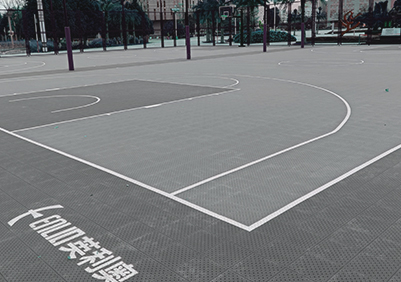10 月 . 03, 2024 15:58 Back to list
commercial warehouse flooring
Choosing the Right Flooring for Commercial Warehouses
When it comes to commercial warehouse flooring, selecting the right material is crucial for ensuring efficiency, safety, and longevity. With the various activities that take place in a warehouse, the flooring must withstand heavy loads, resist spills and stains, and provide a safe environment for workers. Here are several flooring options and considerations to help businesses make an informed decision.
1. Concrete Flooring
Concrete is the most commonly used flooring material in warehouses due to its robust nature. It can handle heavy equipment like forklifts and pallet jacks with ease, making it ideal for high-traffic areas. Moreover, concrete is highly durable and requires minimal maintenance. However, it can be prone to cracking and may be slippery when wet, so it's essential to incorporate non-slip coatings or treatments. Additionally, concrete can be polished or stained for aesthetic appeal, giving warehouses a more professional look.
Epoxy flooring is another popular choice due to its resilience and ease of cleaning. Epoxy is applied as a liquid, creating a seamless surface that is resistant to spills, chemicals, and abrasions. This makes it an excellent option for warehouses that deal with hazardous materials or require a cleanroom environment. Epoxy coatings can also enhance visibility and reflectivity, improving overall lighting conditions in the warehouse.
3. Vinyl Flooring
commercial warehouse flooring

Vinyl flooring is a cost-effective alternative that offers versatility in design. While it's more commonly found in retail spaces or offices, there are commercial-grade vinyl options that stand up well to the demands of a warehouse. Vinyl is easy to install, comfortable underfoot, and available in a multitude of colors and patterns. However, it's crucial to select high-quality, heavy-duty vinyl that can resist rips and tears from heavy machinery.
4. Polyurethane Flooring
Polyurethane is another excellent choice for industrial spaces. Similar to epoxy, it provides a seamless, durable surface resistant to chemicals and staining. However, polyurethane tends to be more flexible, making it a suitable option for environments where temperature fluctuations occur. It offers a high gloss finish, enhancing the overall aesthetics of the warehouse. Polyurethane is also UV-resistant, making it ideal for spaces with lots of natural light.
5. Rubber Flooring
Rubber flooring is gaining popularity due to its shock absorption and slip-resistance features. It provides excellent traction and can reduce the risk of worker injuries. Rubber is durable and comes in various styles and thicknesses, allowing warehouses to choose the best fit for their specific needs. Moreover, rubber flooring is often available in interlocking tiles, which can simplify installation and replacement processes.
Conclusion
In conclusion, selecting the right flooring for commercial warehouses is a critical decision that can impact operational efficiency, safety, and maintenance costs. Whether opting for concrete, epoxy, vinyl, polyurethane, or rubber, businesses should consider their specific needs, including load capacity, slip resistance, and the potential for chemical spills. By investing in quality flooring solutions tailored to their operational requirements, warehouse managers can create a safer and more productive work environment. Ultimately, the correct choice of flooring will contribute significantly to the overall success and functionality of a commercial warehouse.
-
Custom Pickleball Court Solutions Convert Tennis & Indoor Builds
NewsMay.30,2025
-
Outdoor Pickleball Court Costs Build & Install Pricing Guide
NewsMay.30,2025
-
Premium Pickleball Sports Courts Custom Design & Installation
NewsMay.30,2025
-
Indoor Pickleball Courts Tennis Court Conversion & Custom Builds Tempe
NewsMay.29,2025
-
Professional Pickleball Court Installation & Tennis Court Conversions
NewsMay.29,2025
-
Grey Synthetic surface-rubber prefabricated track
NewsMar.07,2025

